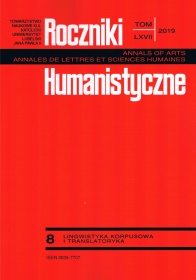Presentation of NLP Modeling: Master–Apprentice Relationship
Abstract
This article presents, in a didactic approach, one of the fundamental tools of Neuro Linguistic Programming: modeling. The bias is to consider the modeling approach as a tool that optimizes learning and efficiency in getting results. In the master-apprentice relationship the act of learning is done by observation, imitation, transmission. The teacher transmits knowledge and know-how but also a « savoir-être » which is fundamental in the realization of a craft work. The teacher has an educational responsibility towards his/her apprentice. The apprentice listens to his/her teacher, acts under his/her influence and performs a job according to his/her instructions to become a “master” in turn. This learning is based on a certain dynamic of trust between these two people. Neuro Linguistic Programming (NLP) offers a number of tools in communication, in relationship building, that identify strategies in behavior. Modeling is a powerful tool which clarifies how a person performs an action that leads to a satisfactory and even excellent result. It gives, thanks to an analysis in the form of questions, a certain number of criteria which allow the learner to carry out an action, a task, a work in an optimal way, following the example of his model. The exercise of modeling seems very relevant to us in a “Master–apprentice” relationship.
References
Dilts Robert, 2004, Modéliser avec la PNL, voyage au cœur des comportements et des pratiques efficaces, Paris, InterEditions–Dunod.
Bandler Richard & Grinder John, 2005, Les secrets de la communication, transformez votre vie et celle des autres avec la PNL, Paris, Les éditions de l’Homme.
Cayrol Alain & de Saint-Paul Josiane, 2010, Derrière la magie, la Programmation Neuro-Linguistique (PNL), Paris, InterEditions.
Girod Antoni, 2005, Sport, communication pédagogie, la PNL pour un coaching efficace, Espagne, Editions Amphora.
Bandler Richard, 1997, Un cerveau pour changer, la Programmation Neuro-Linguistique, Paris, InterEditions.
Bandler Richard & Grinder John, 2015, La Structure de la Magie, langage et thérapie, tome 1, Paris, InterEditions.
Thiry Alain & Lellouche Yves, 2007, Apprendre à apprendre avec la PNL, les stratégies PNL d’apprentissage à l’usage des enseignants du primaire, Bruxelles, De Boeck & Larcier s.a.
Thiry Alain, 2015, Ça y est, j’ai compris ! Méthodes d’études et stratégies d’apprentissage avec la PNL, Louvain-la-Neuve, De Boeck Supérieur s.a.
Esser Monique, 2004, La Programmation Neuro-Linguistique en débat, Paris, L’Harmattan.
Copyright (c) 2019 Roczniki Humanistyczne

This work is licensed under a Creative Commons Attribution-NonCommercial-NoDerivatives 4.0 International License.





